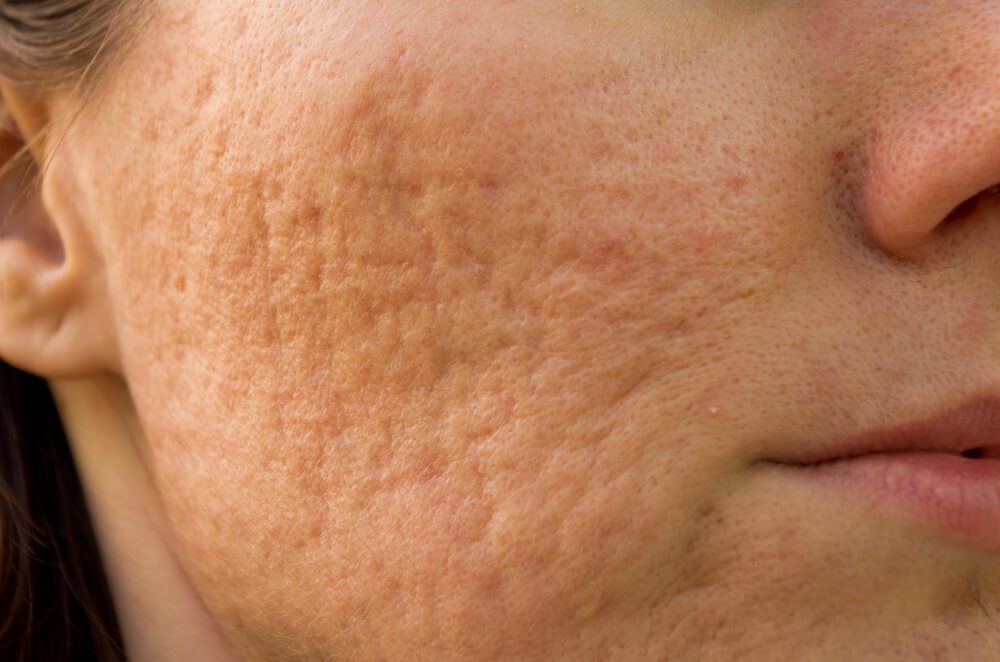Dermal fillers are well known as an effective way to combat wrinkles and fine lines and as a way to restore sunken areas, such as cheeks or under the eyes. However, they can also provide an effective treatment option for many types of acne scars, as described below.
What Kinds of Filler Are Used?
Hyaluronic acid-based fillers (the most common type) are widely used. Hyaluronic acid occurs naturally in the body, where its purpose is to hydrate and bind moisture. Hyaluronic acid fillers are used to fill in the skin under indented or sunken scar tissue; they can also serve to raise the skin surrounding raised scars, thereby evening out the skin surface.
Synthetic collagen fillers using Poly-L-lactic acid are also an option. They can be injected in a similar manner to hyaluronic acid fillers to compensate for sunken or raised scar tissue. These fillers can also serve to stimulate the body’s production of collagen, providing wider benefits as they improve the overall tone and texture of the skin. Synthetic collagen fillers are more effective when used on deeper scars.
Your practitioner should have the experience to be able to select the most suitable candidates from the wide range of available fillers – there are very many different formulations, allowing dermal fillers to be used to address a very wide range of cosmetic issues.
Limitations of the Procedure
Not all types of acne scars can be treated effectively using dermal fillers. In particular, treating deep scars or scars with sharply defined edges may not produce the intended results. Similarly, raised thick scars are not suitable candidates for dermal filler treatment.
Duration of the Benefits
Dermal fillers only provide a temporary solution. As they are made primarily from naturally-occurring substances, the body slowly absorbs and disperses the injected material. The length of time before needing to top-up the filler varies according to the filler, the part of the body being treated, and the patient’s metabolism. It will eventually be necessary to repeat the procedure to prevent the scars from becoming visible again. Benefits typically last between six and twelve months.
Other Treatment Options
There are many other ways of treating acne scars, including skin abrasion, chemical peels, laser resurfacing, and more invasive surgical techniques. Your practitioner should have the experience to be able to offer you a treatment plan adapted to your specific situation and needs, including a combination of different treatment types when appropriate.
Your Laser Skin Care
Your Laser Skin Care practitioners are medically qualified and very experienced in performing dermal filler procedures. We also have extensive experience with a wide variety of other non-invasive cosmetic procedures. We can help you choose the safest, most effective, and most cost-effective way to achieve your cosmetic goals. Call us at (323) 525-1516 to schedule a free consultation, or visit us online for more information.


